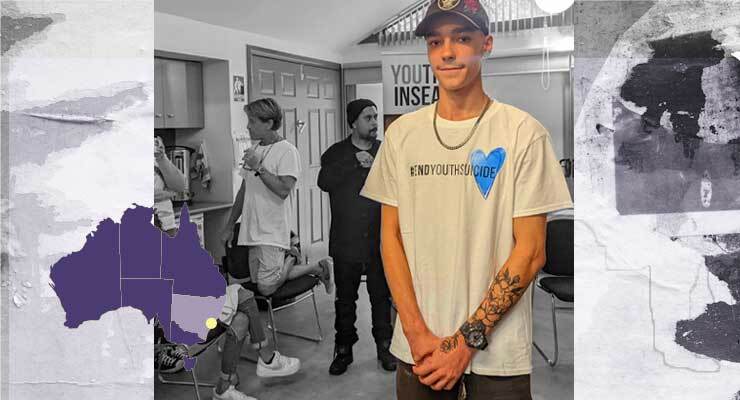
Mental health support could be a vital issue in the marginal seat of Gilmore, south of Sydney, which was devastated by the Black Summer bushfires, COVID-19 isolation issues and recent flooding in the region.
More than 5000 children and youth are at risk of significant harm in the electorate, CEO of peer-led youth trauma recovery organisation Youth Insearch Stephen Lewin tells Crikey. One in five children in Shoalhaven is affected by mental illness and more than a third of self-harm emergencies involve people aged 15 to 24.
The seat is held with a 2.6% swing by Labor’s Fiona Phillips, who is up against the Liberals’ Andrew Constance and the Greens’ Carmel McCallum. Constance’s presence makes for an interesting election: as the Liberal member for Bega for the past 18 years, he’s held the NSW treasury and transport ministerial portfolios, but rose to infamy during the Black Summer bushfires.
Constance openly criticised Prime Minister Scott Morrison in 2020, saying he received “the welcome he probably deserved” when he was confronted by locals in the fire-ravaged town of Cobargo — with one pregnant woman refusing to shake his hand.
He’s since repaired the relationship, becoming the Liberal candidate without a preselection vote. While party members were promised this year they’d be able to vote after Warren Mundine was controversially parachuted into the role in 2019, the other three Liberal candidates dropped out in December 2021.
Stephen Hayes, Jemma Tribe and Paul Ell denied being pushed out of the preselection battle, citing personal and professional reasons for not running. Constance has said he’s not seeking a ministerial portfolio and wants to work as a local member.
At a Youth Insearch suicide panel discussion in Nowra, in the Gilmore electorate today, Constance said he developed PTSD following the fires and was an advocate of increased mental health support. But he became defensive when pressured about funding commitments, pointing to the Coalition’s investment in youth mental health service Headspace.
He promised to secure extra funding for Youth Insearch, which recently received $4.74 million from the federal government to pilot a youth lived experience workforce program in rural communities — however, the funding doesn’t extend to Gilmore.
He also refused to say whether he’d go against the Liberal Party to push for extra action on climate change following the extreme weather events. “We should never underestimate the impact the climate has on people’s wellbeing,” he told Crikey. “Wellness is at the core of everything we should be doing.”
But it’s not clear whether his pitch swayed voters. Some attendees admitted they didn’t follow or care about politics; others said they, working in the mental health space, were die-hard Greens or Labor supporters.
Youth Insearch member Zane Condon, aged 18, told Crikey that across the fires and pandemic he had wanted to see more youth-outreach services. “There’s kids out there that don’t have internet or stuff like that to be able to message their family … it was important to have more people around [during those periods].”
The Greens’ Carmel McCallum stressed that mental health support alone wasn’t enough in a region wrought with insecure housing — the mother of three once had to move five times in three years with her four children and husband — arguing more support nets were needed to protect residents, especially in the wake of extreme climate events.
Labors’ Fiona Phillips appeared briefly during a video link but dropped out due to an unstable internet connection.








Just what are liberal values now? The question is: is the LNP a mental illness or is membership of the LNP a sign of sagging mental health?